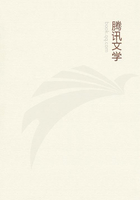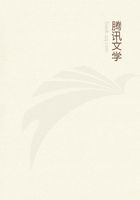[32] Charles Nicolas, ibid. - In 1821, the personal and poll tax yields 46 millions; the tax on doors and windows, 21 millions: total, 67 millions. According to these sums we see that, if the recipient of 100 francs income from real-estate pays 16 fr. 77 real-estate tax, he pays only 4 fr. 01 for his three other direct taxes. - These figures, 6 to 7 francs, can nowadays be arrived at through direct observation.
- To omit nothing, the assessment in kind, renewed in principle after 1802 on all parish and departmental roads, should be added; this tax, demanded by rural interests, laid by local authorities, adapted to the accommodation of the taxpayer, and at once accepted by the inhabitants, has nothing in common with the former covée, save in appearance; in fact, it is as easy as the corvée was burdensome.
(Stourm, I., 122.)
[33] They thus pay between 2 and 6% in taxes, a very low taxation if we compare with the contemporary industrial consumer welfare society, where, in Scandinavia, the average worker pay more than 50% of his income in direct and indirect taxes. (SR.)[34] Charles Nicolas, "Les Budgets de la France depuis le commencement du XIXe Siècle," and de Foville, "La France économique," p. 365, 373.
- Returns of licenses in 1816, 40 millions; in 1820, 22 millions; in 1860, 80 millions; in 1887, 171 millions.
[35] The mutation tax is that levied in France on all property transmitted by inheritance. or which changes hands through formal sale (other than in ordinary business transactions), as in the case of transfers of real-estate, effected through purchase or sale. Timbre designates stamp duties imposed on the various kinds of legal documents.-Tr.
[36] Ibid. Returns of the mutation tax (registration and timbre).
Registration in 1820, 127 millions ; in 1860, 306 millions; in 1886, 518 millions. - Timbre, in 1820, 26 millions; in 1860, 56 millions; in 1886, 156 millions. Sum-total in 1886, 674 millions. - The rate of corresponding taxes under the ancient régime (contr?le, insinuation centième denier, formule) was very much lower; the principal one, or tax of centieme denier, took only 1 per 100, and on the mutations of real-estate. This mutation tax is the only one rendered worse; it was immediately aggravated by the Constituent Assembly, and it is rendered all the more exorbitant on successions in which liabilities are not deducted from assets. (That is to say, the inheritor of an indebted estate in France must pay a mutation tax on its full value. He has the privilege, however, of renouncing the estate if he does not choose to accept it along with its indebtedness.) - The taxpayer's resignation to this tax is explained by the exchequer collecting it at a unique moment, when proprietorship just comes into being or is just at the point of birth. In effect, if property changes hands under inheritance or through free donation it is probable that the new owner, suddenly enriched, will be only too glad to enter into possession of it, and not object to an impost which, although taking about a tenth, still leaves him only a little less wealthy. When property is transferred by contract or sale, neither of the contracting parties, probably, sees clearly which pays the fiscal tax; the seller may think that it is the buyer, and the buyer that it is the seller. Owing to this illusion both are less sensible of the shearing, each offering his own back in the belief that it is the back of the other.
[37] See "The Ancient Régime," pp.358-362. (Ed. Laff. I. 266-268.)[38] See "The Revolution," vol. I., pp. 16, 38. (ED. Laff. I. pp. 326, 342.)[39] Decree of Oct. 31 - Nov. 5, 1789, abolishing the boundary taxes between the provinces and suppressing all the collection offices in the kingdom. - Decree of 21-30 March 1790, abolishing the salt-tax.
Decree of 1-17 March 1791, abolishing all taxes on liquors, and decree of 19-25 Feb. 1791, abolishing all octroi taxes. - Decree of 20-27March 1791, in relation to freedom of growing, manufacturing and selling tobacco; customs-duties on the importation of leaf-tobacco alone are maintained, and give but an insignificant revenue, from 1,500,000 to 1,800,000 francs in the year V.
[40] Gaudin, Duc de Ga?te, "Mémoires," I., 215-217. - The advantages of indirect taxation are well explained by Gaudin. "The taxpayer pays only when he is willing and has the means. On the other hand, when the duties imposed by the exchequer are confounded with the price of the article, the taxpayer, in paying his due, thinks only of satisfying a want or of procuring an enjoyment." - Decrees of March 16 and 27, and May 4, 1806 (on salt), of February 25, 1804, April 24, 1806, Nov. 25, 1808 (on liquors), May 19, 1802, March 6, 1804, April 24, 1806, Dec..
29, 1810 (on tobacco).
[41] Letrosne, "De l'administration des finances et de la réforme de 1'imp?t" (1779) pp.148, 162. - Laboulaye, "De l'administration fran?aise sous Louis XVI." (Revue des cours littéraires, 1864-1865, p.677). "I believe that, under Louis XIII., they took at least five and, under Louis XIV, four to get two."[42] Paul Leroy-Bealieu, "Traité de la science des finances," I., 261.
(In 1875, these costs amount to 5.20 %.) - De Foville, ibid. (Cost of customs and salt-tax, in 1828, 16.2 %; in 1876, 10.2 %. - Cost of indirect taxation, in 1828, 14.90 %; in 1876, 3.7 %.) - De Calonné, "Collection des mémoires présentés à l'assemblée des notables," 1787, p.63.
[43] See "The Ancient Régime," P.23, 370. - " The Revolution," I., 10, 16, 17. (Ed. Laff. I. pp. 23-24, 274, 322, 326-327.)[44] See "The Ancient Régime," p.361. (Ed. Laff. I. p.268.)[45] Leroy-Beaulieu, ibid., I., 643.
[46] Decrees of November 25, 1808, and December 8, 1824.
[47] Certain persons under the ancient régime enjoyed an exemption from the tax on salt.
[48] Stourm, I., 360, 389. - De Foville, 382, 385, 398.
[49] These figures are given by Gaudin.
[50] Thiers, XIII., pp.20 to 25.















